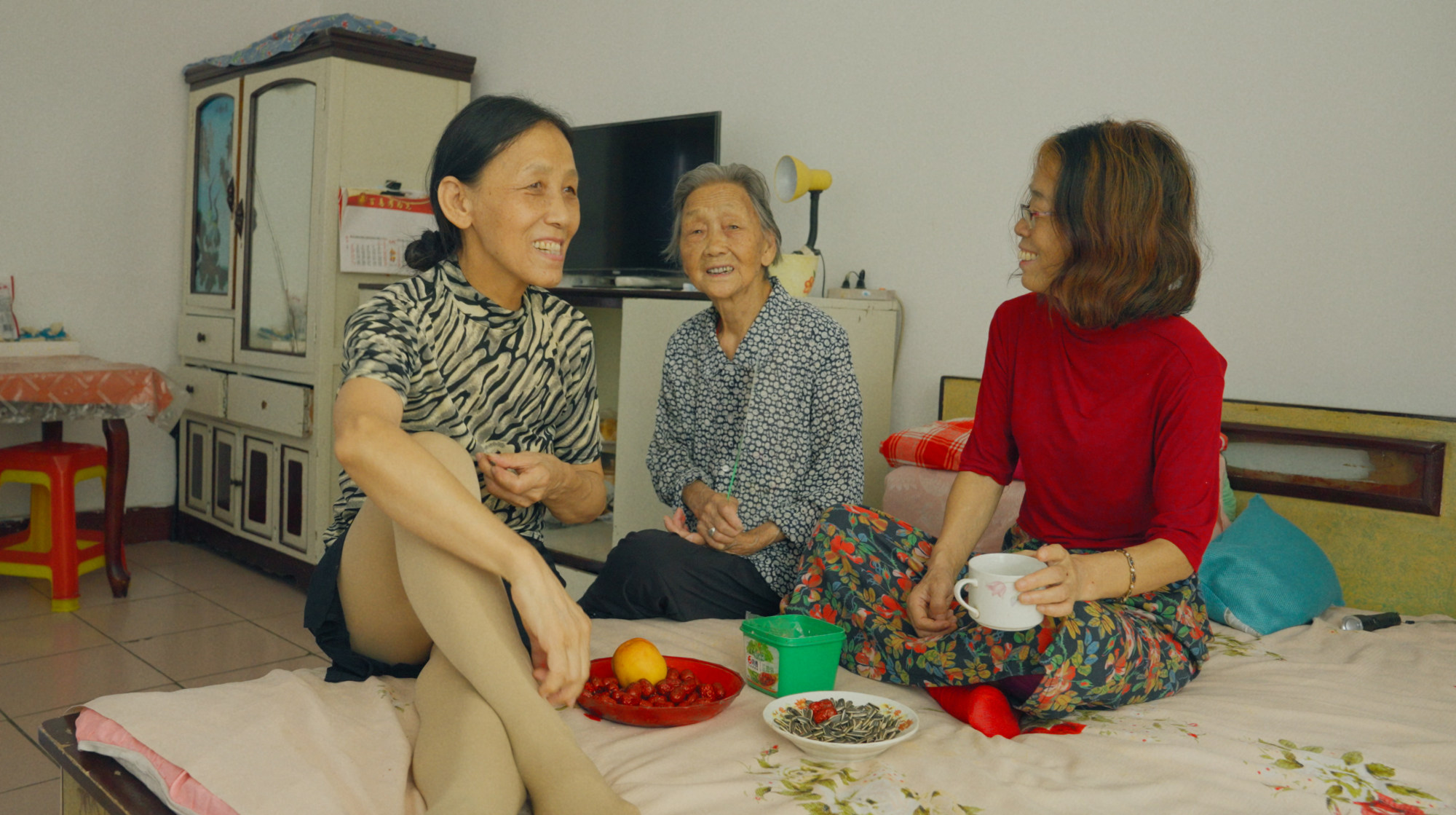
‘Only rain and snow for water’: Chinese filmmaker charts her family’s rise from harsh rural roots
- New York-based Zhao Yehui’s great-grandfather founded a village of cave homes on China’s Loess Plateau. She returned there to tell her family’s story in a film
Filmmaker and multimedia artist Zhao Yehui went looking for country roads to take her home – or more accurately, to the home of her forebears, shrouded in the mists of time. But once there, she found more than mere ghosts.
In a pocket of the Loess Plateau, in central China’s Shanxi province, Zhao found her way to the village of Xi Jiao Gou – and into the centre of a family story embracing revolution, famine, conflict and eventual dispersal.
Zhao chronicles the lives and times of four generations in her forthcoming film, May the Soil be Everywhere, begun in 2021 and now in post-production. “It’s my first feature-length documentary and spans the seasons of the village,” says Zhao, 32, on a Zoom call from her home in New York.
But before those seasons could be depicted, the village had to be identified. And that meant finding the century-old cave dwellings built by her great-grandfather.

Zhao, who left her native Taiyuan, the Shanxi capital, to study in the United States in 2015, won a US$25,000 International Documentary Association award to cover production costs. She recently spent seven months researching and shooting her film – and discovering how harsh life once was – back in her homeland.
“The village was built by my great-grandfather in the early 1900s,” says Zhao. “He went there as a teenager, to escape famine. It was wilderness – a valley in a huge, forested mountain range. With only rain and snow for water he was able to raise a community.”
I wanted to find the village myself and feel the spirit of my great-grandfather
That community, occupying homes dug from soil, thrived for decades.
But timing is said to be everything: a maxim proved correct by Xi Jiao Gou, for better or worse.
The village experienced its share of 20th century China’s political turmoil; and, as Zhao discovered, particularly in the wake of the Cultural Revolution villagers embarked on “different life trajectories”.
“Some were persecuted. Some received land. Different life stories,” she says.
Not that the thrust of May the Soil be Everywhere is political.
After ‘Picasso of the East’ left China, his life was a mystery. Until now
“My grandmother Zhang Xiuying is the protagonist, so I learn the story of her father and the village from her,” says Zhao. “But I wanted to find the village myself and feel the spirit of my great-grandfather.
“The nearest city is Changzhi, but the village has been abandoned since the 1970s and nobody knew where it was. So I went to a place nearby and asked the locals.
“Some had heard of my great-grandfather but tried to persuade me not to go, because the mountain road can no longer be used.”
Zhao was not to be deterred. “There was construction near the village, with trucks driving to and from a quarry. I hitchhiked to get to the area. From the quarry I was able to hike up the mountain,” she says.
When the documentary is released (initially at a major film festival, then theatrically, then on streaming services), viewers should expect the unorthodox.

Zhao’s previous films, featured at the likes of the Asian American International Film Festival, DOC NYC and the Spain Moving Images Festival, often use poetry, animation, graphics or personal performances by Zhao as part of the action.
Meanwhile, the stories behind May the Soil be Everywhere take shape through her grandmother’s recollections, and also poignant absences.
“One reason for making this film,” she reveals, “was that when I asked about my great-grandfather I was told there were no images of him. So I don’t know what he looked like. There is a lack of family images of our ancestors, so with the film I hoped to create new ones.”
How Hong Kong New Wave director Yim Ho explored rarely seen sides of China
Still fresh in her grandmother’s mind were the rhythms of her earlier life. “From the train station, she used to walk, in the 1970s, day and night for a few days to get to the village,” says Zhao.
“My family cultivated all over the mountains, which have now reverted to wilderness. In the film, my grandmother talks about planting yellow beans, green beans; they planted a lot of wheat, which they would harvest on summer days, waking up at 4am because the fields were so far away.
“There were fruit trees – peaches, apricots, dates. And squash grew in the yard. They planted different crops through the seasons and preserved fruit tree leaves in huge pots in winter, for food,” she says.

“At 90, my grandmother lives with the memories every day. She’s taught me how to harvest, plant, and read clouds to predict the weather. And although she’s no longer a farmer she still plants pepper seeds on her terrace every year, to cook with.
“The film may be about searching for home, but it’s also about love – my grandmother’s enduring love for the land, farming, home.”
And what of its title?
“Hidden in the forest is a shrine to the deity of sky and soil, where my grandmother prayed for rain and safety from wolves. I found it with a farmer who works nearby. It’s overgrown, but we tried to figure out the poetic engravings.
“One side says, ‘May the Growth Flourish Everywhere’.” The other? “‘May the Soil be Everywhere’.”

